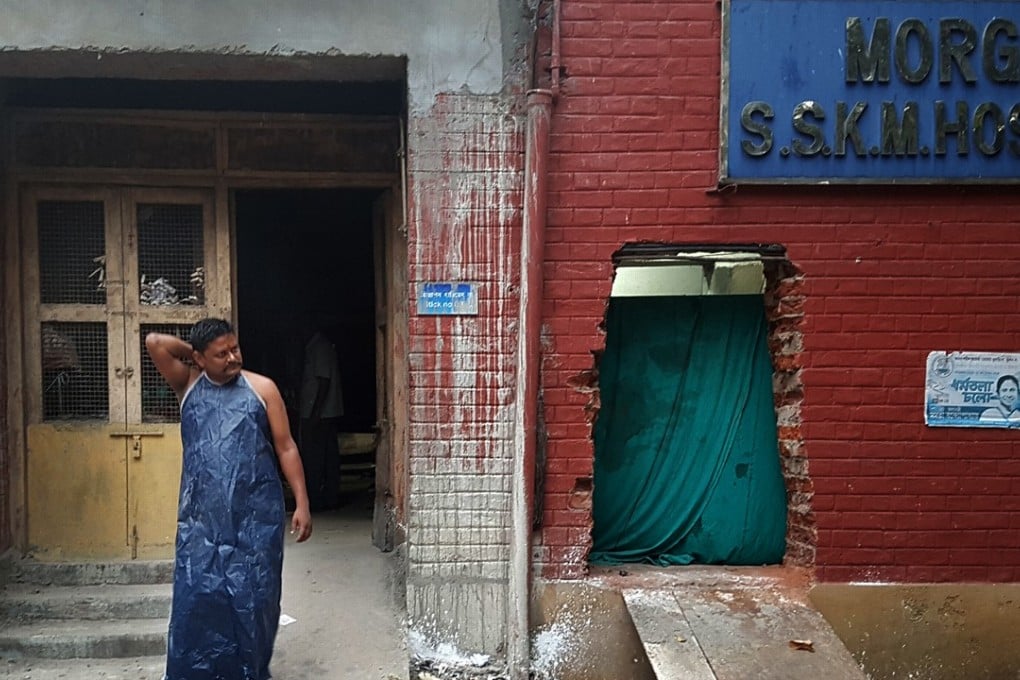Keeping death in the family: an untouchable caste in India is vital to Kolkata’s mortuaries
- One clan of Doms – the caste of corpse burners – work in five government hospital mortuaries
- They have held these jobs for two or three generations

When Sanjay Mallick was eight years old, his class teacher Mrs Mukherjee summoned his father to school for a meeting. It was the first time Mr Mallick had been called to his children’s school, and he was worried. His three elder boys had never made trouble, and Sanjay, the youngest, was no worse than other eight-year-old boys.
“Mrs Mukherjee had asked the class to describe what our fathers did,” Sanjay recalled. “I stood up and said, ‘My father picks up dead bodies.’”
In her meeting with Sanjay’s father – whose job was transporting dead bodies to and from the morgue in a government hospital – she said she had never heard a child speak of a parent with such pride. “You take care of this boy,” she told Mr Mallick. “Keep an eye on him when he enters that difficult age, don’t let him run wild.”
Despite his pride in his father, Sanjay wanted to study hospital administration. He liked the hospital environment but wanted to be a boss. In the end though, he followed his father into the family business.
“I was in the second year of my English honours degree at South City College when my father died. His pension stopped, the money in the household dried up,” Sanjay said. “When a vacancy was advertised in my father’s department, I applied. I got the job. It’s not what I’d planned, but it’s not bad. I’ve known the hospital ever since I can remember. I got my father’s [residential] quarters, the one I grew up in with my brothers, where my mother and father lived and died.”
Sanjay was recruited as a dissection hall attendant at the Institute of Postgraduate Education and Medical Research, one of the busiest and most prestigious public hospitals in Kolkata. His job is to dissect cadavers under the instruction of medical science professors to help students understand the human anatomy. Since 2009, he has also served in the forensics department, which works on criminal cases.
